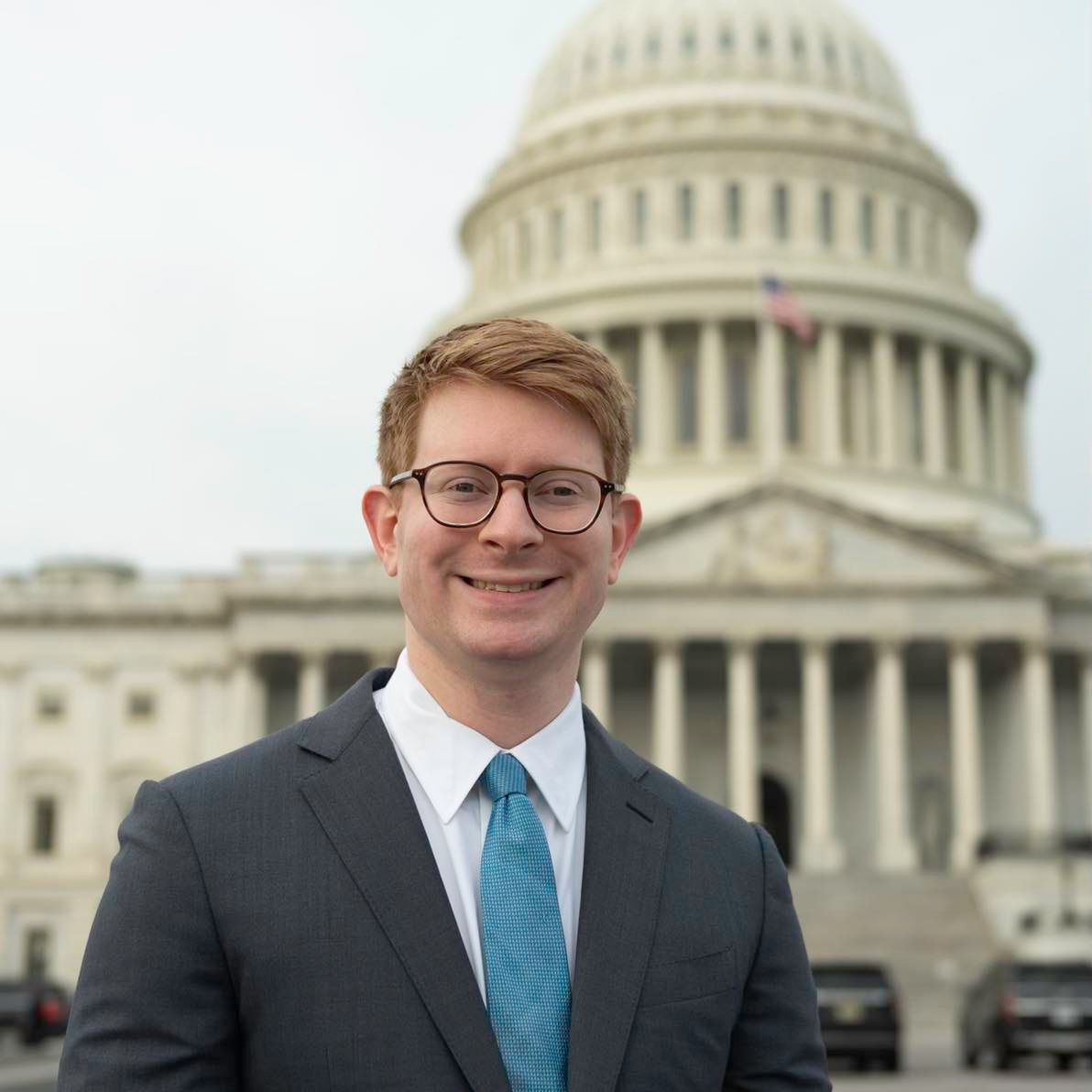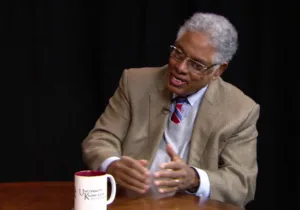“How many economics classes did you take?” asked Laura Ingraham, longtime Fox News host, to Elizabeth Breunig, noted Catholic socialist, on The Ingraham Angle. It’s not a question most people, even Economics students, want to answer. Is Ingraham really about to quiz Breunig on demand curves, the money supply or constrained utility maximization? Obviously not, yet the implication that anyone disagreeing with Milton Friedman (whom Ingraham highly praises) simply lacks formal education is an unfortunately common sentiment. Other examples from The Babylon Bee, PragerU, Ben Shapiro and the Foundation for Economic Education are just a few instances of a ubiquitous mindset. If “basic economics” really proves the universal superiority of laissez-faire, maybe Breunig, Bernie Sanders and AOC really do just need to go back to school.
Economics is, of course, much more complicated and debatable than an introductory course would suggest; AOC has a BA in Economics, yet education clearly failed to enlighten her. Nevertheless, what law professor James Kwak calls “Economism,” or “the misleading application of basic lessons from Economics 101 to real-world problems, creating the illusion of consensus and reducing a complex topic” is rampant in our discourse. In his Atlantic piece, Kwak spells out all the problems with attributing unquestionable social scientific expertise to a particular set of libertarian economists, like Hayek and Friedman, better than I could here.
But beyond shallow policy debates, there are more pernicious implications for the public’s understanding of social science, epistemically and ethically. Friedman made great contributions to Economics, but I speculate his ideological progeny bears primary responsibility for the “take Econ 101” meme embraced by too many conservatives. Republicans have come to view Economics as a gnostic faith with economists as the high priests with sole authority to interpret it. After all, if every policy choice is ultimately about economic growth and Economists are the only ones qualified to make such pronouncements, why would anyone else matter?
Epistemically, a perpetual deference to Economics on most matters of public policy misunderstands the intrinsic shortcomings of the discipline. Of course, in an academic context, economists don’t claim the wide-ranging expertise sometimes attributed to them. Their mission, as they describe it, is much narrower: the study of resource allocation under scarcity. To predict how these choices are made they utilize the Rational Choice Model (RCM) which, as its name suggests, presumes humans necessarily optimally distribute their resources to gain the most utility.
But what’s being measured when we compare the utility or welfare of economic systems? Utility is a way of ranking different bundles of goods in a way that explains why the chosen bundle, presumed optimal under the RCM, is selected. Similarly, economic (not political) welfare refers to the ability of firms and households to make every possible mutually beneficial exchange; a market with every such transaction made would be perfectly efficient. Welfare and utility under the RCM are the primary metrics by which economists evaluate policies.
Of course, many have argued that human flourishing defies economic models. In Dostoyevsky’s Crime and Punishment (1866) Raskolnikov overhears someone who “keeps up with modern ideas” claim “that compassion is forbidden nowadays by science itself, and that’s what is done now in England, where there is political economy” referencing John Stuart Mill, the economist and utilitarian philosopher. Measurements like utility, welfare and the RCM have their uses, but looking to them exclusively misses that they are “only rational under a specific set of assumptions about the metaphysical character of our world,” (36) according to Mary Hirschfeld, professor of Economics and Theology at Villanova and author of Aquinas and the Market. Yet, when Republicans treat libertarian economists like oracles it’s clear that their expertise is valued über alles.
When economists judge one model of political economy as generating more welfare, which Hirschfeld says is “the primary justification for [free] markets,” all they are saying is that “[free] markets meet consumers’ preferences as well as possible.” (47) But what if some of our priorities for consumption are damaging to ourselves and the broader community? We know some consumption preferences for time, energy and money (like for social isolation over community engagement) are individually and socially harmful; yet, formal economics has no mechanism to illustrate these moral differences.
But this normative blindness is by design. In fact, economists Faruk Gul and Wolfgang Pesendorfer argue in “The Case for Mindless Economics” that indifference to normative distinctions between baskets of goods is a great strength of economics; “The standard definition of [economic] welfare is appropriate because economics has no therapeutic ambition; it does not try to improve the decision maker but tries to evaluate how economic institutions mediate (perhaps psychologically unhealthy) behavior of agents.” (5) Economists see value in their work not as adjudicators of how resources should be used, but narrowly as reporters and predictors of resource use. Even if those resources are spent in “psychologically unhealthy” ways, this is not an economist’s purview.
The problem with this clean positive (descriptive) economics vs. normative economics split is that it never works out. Economists don’t explicitly claim their discipline is the ultimate authority in social science, but that is the position they find themselves in. As Hirshfeld writes:
For starters, we can observe that “efficiency” is invariably used in an evaluative sense. Politics and institutions are better or worse to the extent that they are more or less efficient… economic analysis is taken seriously by policy makers and the public at large because economics is thought of as the science of improving wellbeing, at least in a material sense… Were economists to seriously adopt the view of standard welfare economics defined by Gul and Pesendorfer, it would seem that economics would no longer command the public attention it currently enjoys. Yet most economists do in fact want to influence public policy. (51-52)
For Economics to remain a science it must be defined narrowly enough to be blind to the ethical concerns normal people have. Economists then push those concerns off to ethicists who have the job of deciding which tradeoffs, whether for equality, social cohesion or whatever, are worth the corresponding declines in efficiency. Efficiency isn’t an intrinsic good, but when professional efficiency measurers (economists) are the only academics we trust, Economics comes to redefine our moral language as MacIntyre writes in After Virtue.
In Patrick Deneen’s 2012 First Things article “Unsustainable Liberalism” he compares the defense of Economics, that it only neutrally describes our behavior with the idea that Liberalism “merely describes our political, social, and private decision making.” As he writes:
In the same way that courses in economics claiming merely to describe human beings as utility-maximizing individual actors in fact influence students to act more selfishly, so liberalism teaches a people to hedge commitments and adopt flexible relationships and bonds. Not only are all political and economic relationships fungible and subject to constant redefinition, but so are all relationships—to place, to neighborhood, to nation, to family, and to religion.
Economics as a science and Liberalism as a philosophy emphasize freedom of choice, whether in politics or the market. But there’s a strand of especially libertarian Liberalism that identifies the metaphysical assumptions of economic models as an accurate conception of humanity. Professional economists don’t argue their models describe humans in our totality. Yet, if Liberalism means constantly maximizing consumer and social choice then the metaphysical assumptions of Economics come to define us anthropologically, ethically and theologically.
To be fair, if you asked an average member of Congress if they believed Economics to be an all-encompassing science of human flourishing, they would say no. They might add that the perhaps excessive focus on growth at the national level is just one of the few bi-partisan points of agreement left. Even so, the bi-partisan consensus for growth first and concern for the social impacts of that growth second is telling; some forms of growth are bad for the spiritual, social and emotional health of the nation in ways output and consumption statistics fundamentally miss. Yet, politicians who ostensibly have concern for these issues seldom criticize the growth-first mentality despite the problems associated with it.
The concept of “consumer surplus” is one example: when manufacturing jobs are outsourced the nation wins on the whole because, though some lose their jobs, consumers are on the whole better off. Under the RCM the unemployed should just get lower-paid jobs, probably in the service industry, but instead many just drop out of the workforce. The principles of efficiency and growth fail to account for the destroyed social capital and communities whose maladies infect the nation. The point isn’t that social scientists simply need to make more accurate predictions. Rather, we have to be far, far more critical of which measurements we can take as proxies for a healthy nation. Economists can’t make these distinctions and libertarians don’t want to, but we as citizens concerned with the flourishing of our nation must.
Some policies, like ones that make it easier for families to only require one full-time earner, would certainly be bad for the GDP and yet could presumably be advantageous for the long term sustainability of the American economy over generations. Many women left the domestic sphere to join the workforce in the last half-century and although this was fantastic for economic growth it has also had serious negative social consequences. Fertility, marriage and social engagement have all declined against a backdrop of increasing productivity and profitability in America. It’s immaterial whether the husband or wife is the primary breadwinner, but the expectation of the dual-income model being the norm across society is unsustainable. Republicans should talk less about economic growth and more about marriage rates, fertility, church attendance and civil engagement. The former was supposed to be a means to the latter, but it hasn’t worked out that way.







 Sponsor a student for Christianity & National Security 2024
Sponsor a student for Christianity & National Security 2024